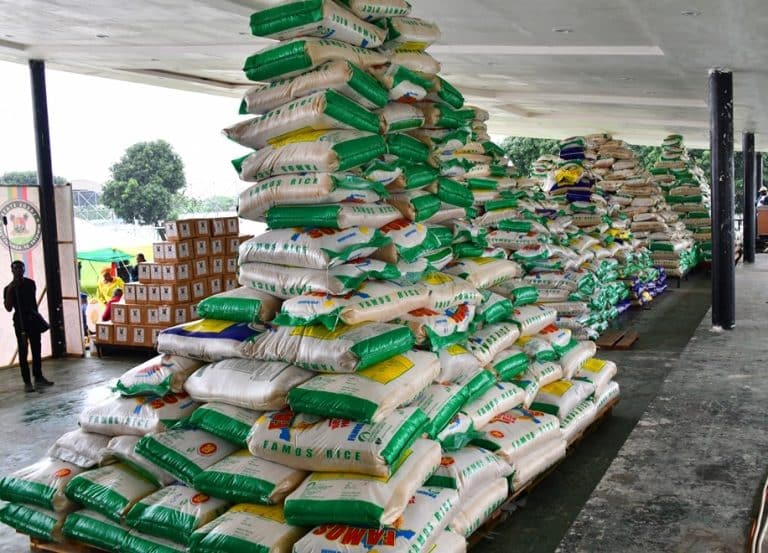News
Food Prices Hit New Highs As Government’s Duty-Free Scheme Fails

The Federal Government’s efforts to reduce food prices through a zero percent duty and exemption from value-added tax on basic food items are facing serious setbacks, as the average price of imported food items surged to a staggering 878.3 price point index in September 2024.
This spike reflects the mounting economic challenges hampering attempts to curb food inflation in Nigeria.
EDITOR’S PICKS
- ICYMI: Nigerian TikToker, Oloba Salo Reportedly Shot in Lekki,
- Don’t Scrap the EFCC, Fix It, Fintiri Slams Calls For Abolition
- AFCON Qualifiers: West Brom Celebrate Ajayi On Super Eagles’ Win Over Libya
EKO HOT BLOG reports that on July 8, 2024, the government introduced a 150-day duty-free import window for essential commodities like maize, husked brown rice, wheat, and cowpeas, aimed at addressing food shortages and rising prices.
However, nearly three months later, the initiative has stalled due to bureaucratic delays, including the Federal Ministry of Finance’s failure to release a list of qualified importers, as outlined in Customs guidelines from August.
At a recent press conference, Finance Minister Wale Edun announced the government’s directive to import maize and wheat to stabilize the market. Despite this, the anticipated implementation of the policy remains elusive, and imported food prices continue to rise.
According to the National Bureau of Statistics (NBS), the price index for imported food saw a significant increase of 30.6 points from August to September 2024, reflecting an 8.97 percent jump since July, when the duty-free import scheme was unveiled.
Year-to-date, imported food prices have risen by 26.81 percent, underscoring Nigeria’s increasing reliance on foreign food products amid domestic shortages.
The trend of rising food inflation has persisted throughout the year, with rates climbing from 26.29 percent in January to 34.83 percent by May.

Food Prices Duty-Free
Monthly analyses reveal a continuous upward trajectory, raising concerns among both consumers and policymakers.
In the second quarter of 2024, the Central Bank of Nigeria (CBN) allocated N547.7 billion ($823.19 million) to support food imports, a 20.6 percent drop from the first quarter’s $689.88 million. Over the past six months, the CBN has disbursed a total of N1.73 trillion to facilitate food imports.
FURTHER READING
- Nigerian Sentenced To 7 Years In U.S. For Multimillion-Dollar Email Fraud
- Tinubu Mourns Death Mele Kyari’s Daughter, Fatima
- How Nigerian Govt Generated N103.7b From Cash Transfer Levies
Click here to watch our video of the week
Advertise or Publish a Story on EkoHot Blog:
Kindly contact us at [email protected]. Breaking stories should be sent to the above email and substantiated with pictorial evidence.
Citizen journalists will receive a token as data incentive.
Call or Whatsapp: 0803 561 7233, 0703 414 5611
















